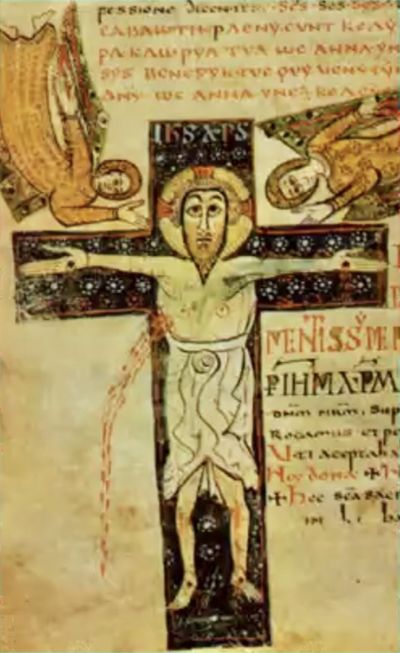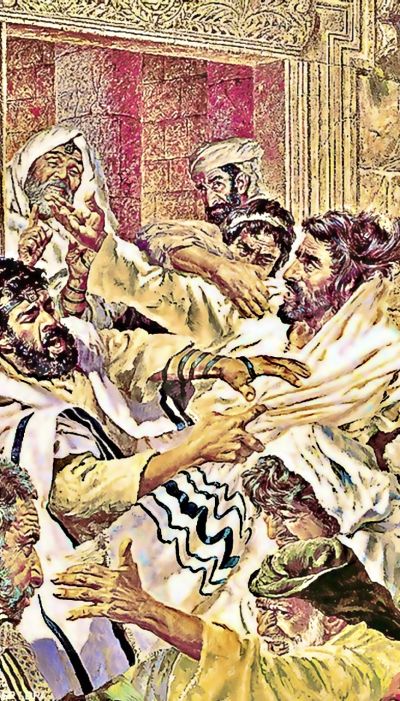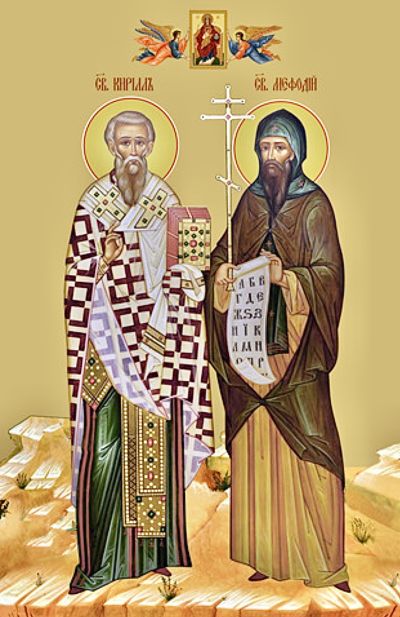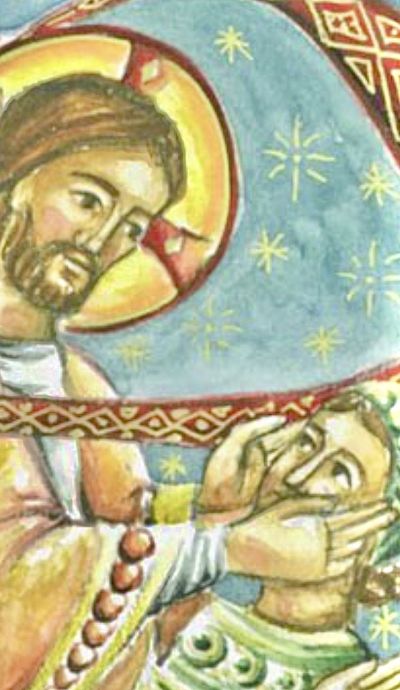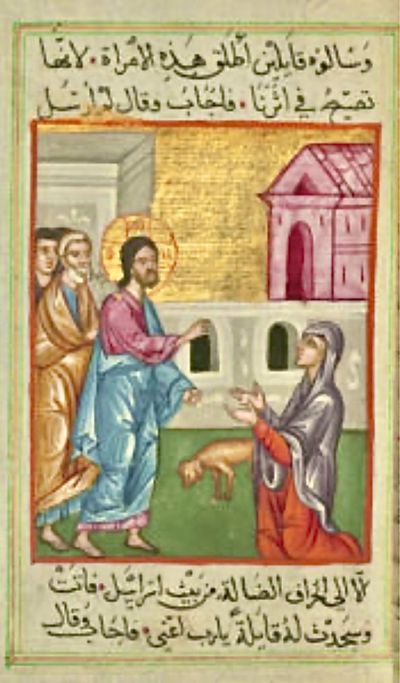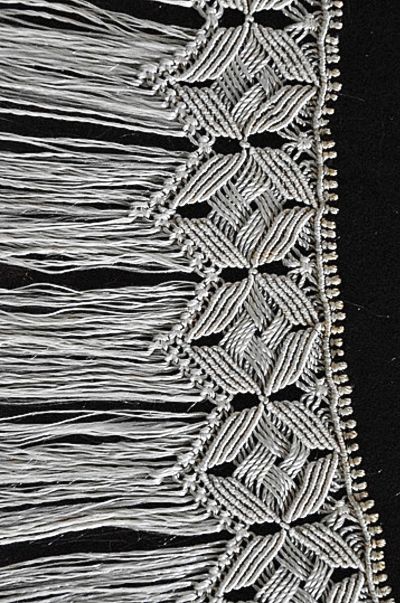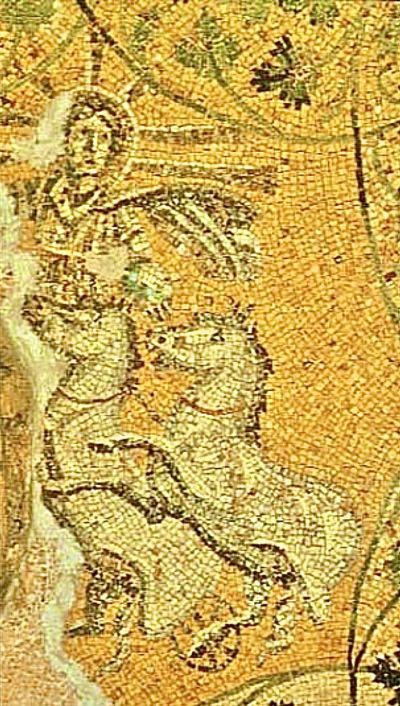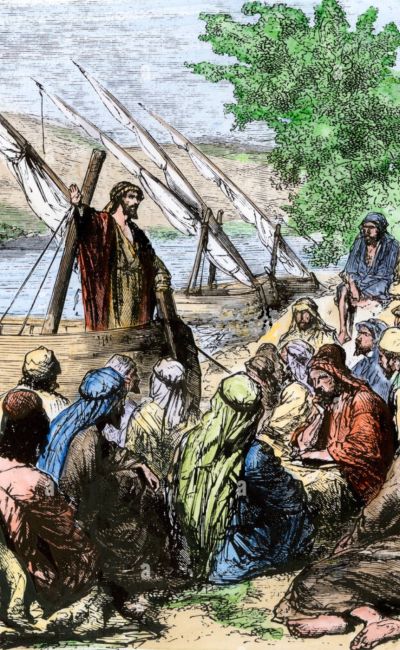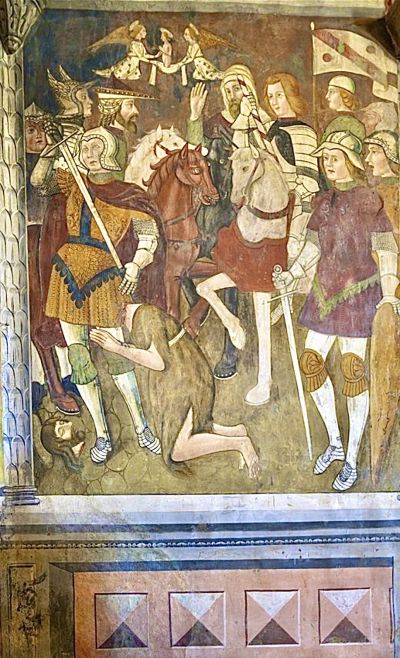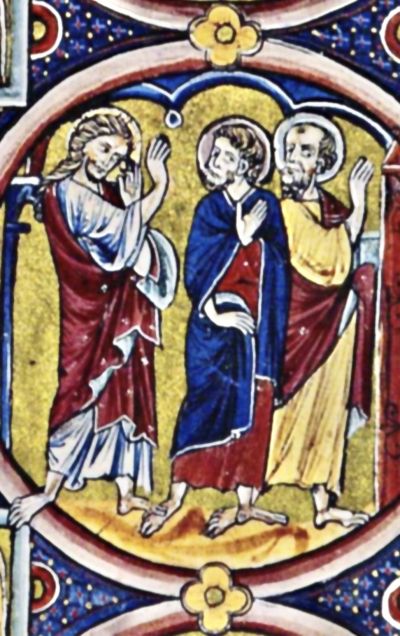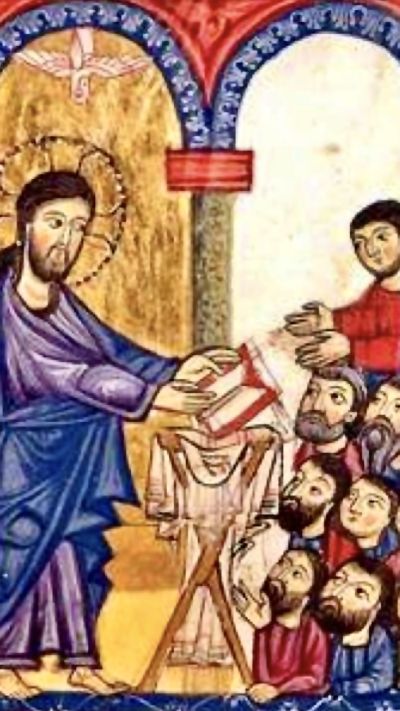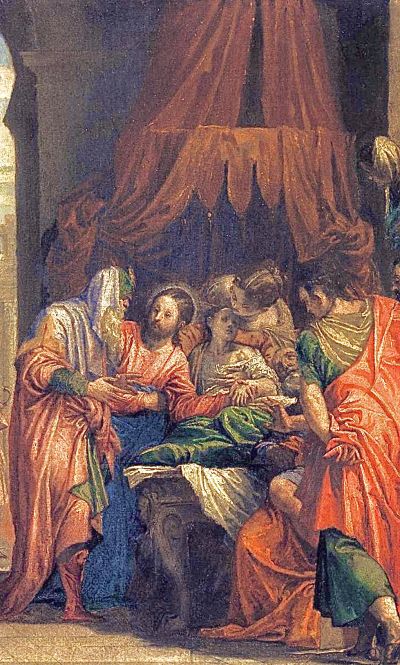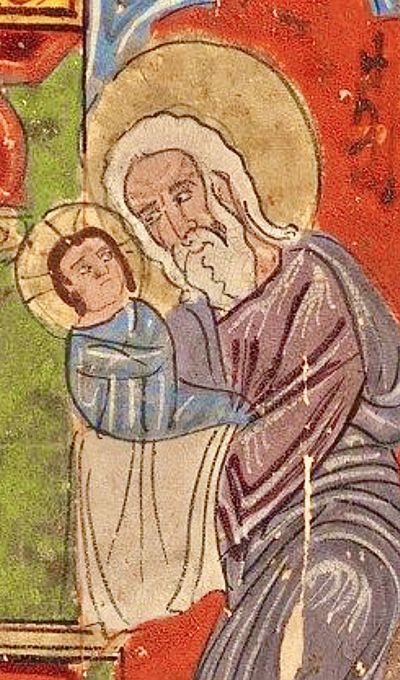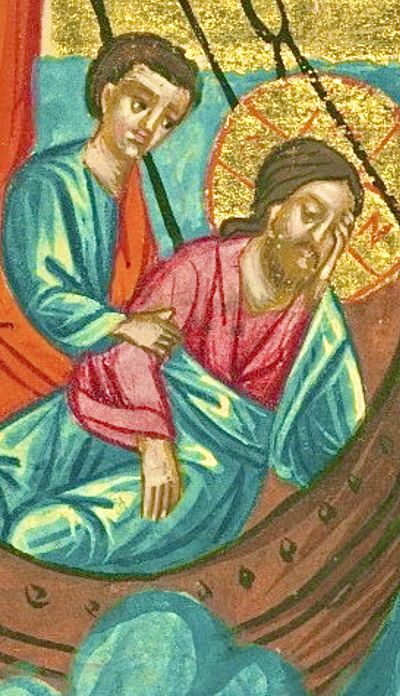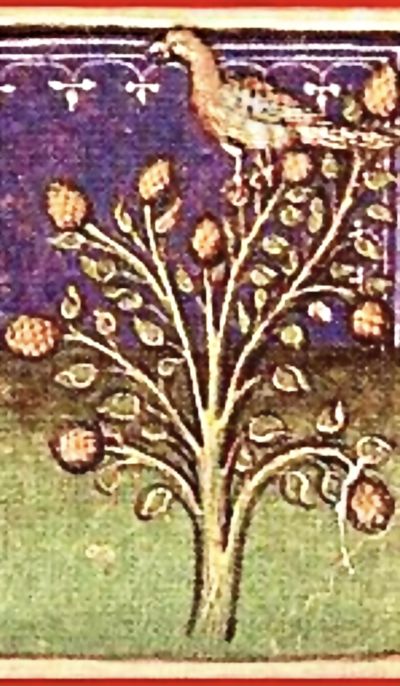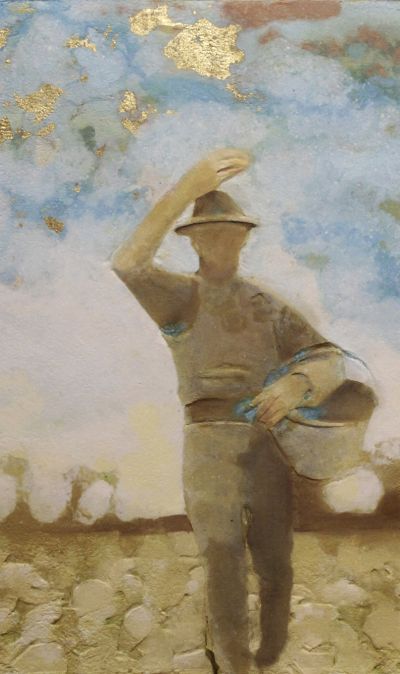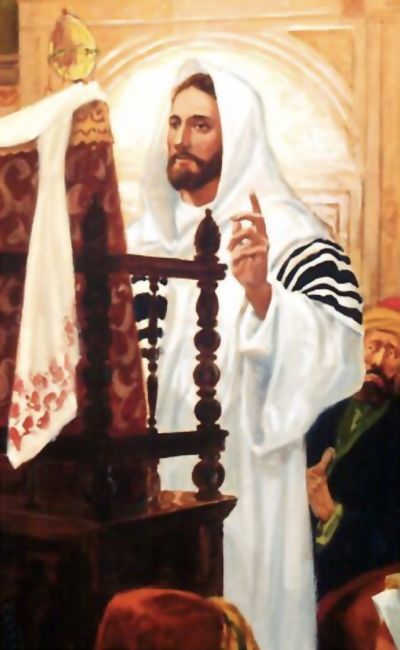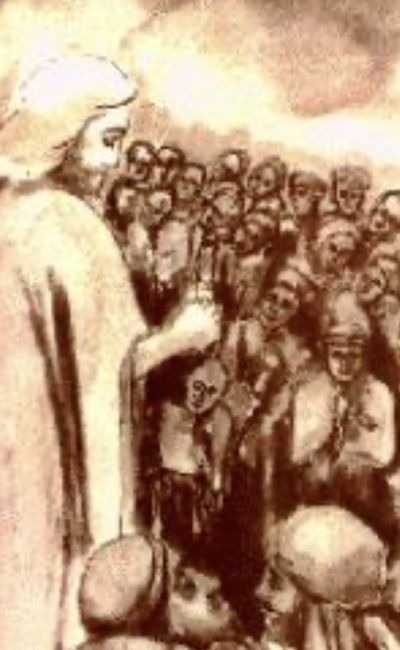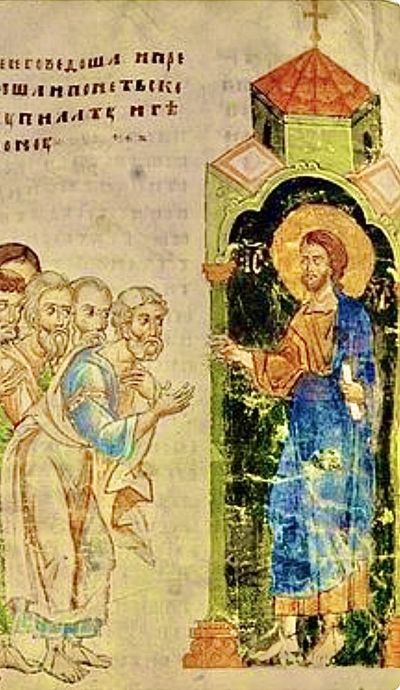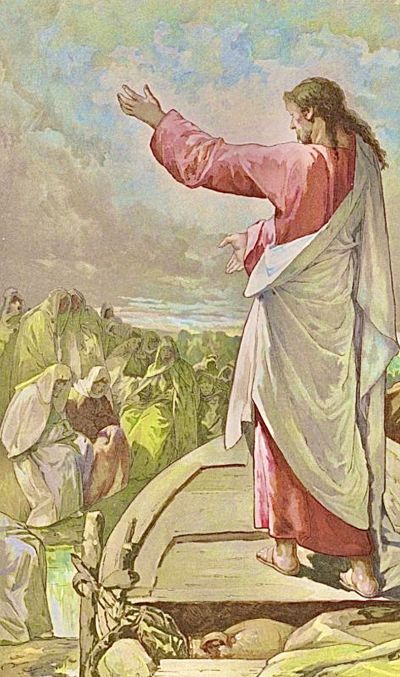Dialogo e Solstizio
(Mt 9:14-15) Fasting is a regenerative principle that has a unique healing power, both detoxifying and essential. It activates the energies of humanity and at the same time of diversity.…
105
Feb 11, 2026
Reputation: crossroads of the Truth of Faith
Written by don Giuseppe Nespeca Published in Commento precedente
(Lk 9:22-25) Yesterday we underlined how the worm of vanity in the search for the esteem leads to hypocrisy and ostentation. We ask ourselves: what makes the Father intimate? Carrying…
126
Feb 10, 2026
The lower self without Faith, theatrical
Written by don Giuseppe Nespeca Published in Commento precedente
Trumpets, bass drums and reciters, or perfect instruments (Mt 6:1-6.16-18) External wiles have no wisdom: they become a boomerang. Whoever tries to shine obscures his own light. Anyone who cares…
178
Feb 9, 2026
The little Food, enriching
Written by don Giuseppe Nespeca Published in Commento precedente
And the much yeast, which impoverishes (Mk 8:14-21) Jesus says one thing, the apostles understand another. The «leaven of the Pharisees and that of Herod» is a theme that alludes…
175
Feb 8, 2026
Wich road leads to the Father?
Written by don Giuseppe Nespeca Published in Commento precedente
Manifestations of God’s power on earth: nothing external (Mk 8:11-13) Jesus clashes with disbelief, stemming from various blinding, or that arises from inattention. Incarnation: there are no other valid Signs…
184
(Mt 5:17-37) Abolish or bring to Completion [vv.17-19] Religious criticized converts to the Faith for being transgressors and against the wealth of Tradition. Thus while some emphasized salvation by Faith…
245
Feb 6, 2026
Two by two: including opposite polarities
Written by don Giuseppe Nespeca Published in Commento precedente
And move the neighbors (Lk 10:1-9) Jesus notes that the Apostles are not free people (cf. Lk 9). Their way of being is so grounded on standard attitudes and obligatory…
161
Feb 5, 2026
Initiation into the Faith, through the emptiness of the inner senses
Written by don Giuseppe Nespeca Published in Commento precedente
Unclogs ears, so that we do not remain deaf and stutterers (Mk 7:31-37) The background of the Gospel passage is the theme of initiation into the Faith, which invests the…
175
Feb 4, 2026
Sons, little dogs and free movement
Written by don Giuseppe Nespeca Published in Commento precedente
Eucharistic crumbs (Mk 7:24-30) Religious law prevented dealing with foreign people and other ethnicities, borders, or culture. At the beginning, Jesus [that is: He in the first communities, His Mystical…
169
Feb 3, 2026
The origin of evil is not in an external cause
Written by don Giuseppe Nespeca Published in Commento precedente
Purity, impudity and misrepresented holiness (Mk 7,14-23) The Lord is for a comprehensive humanization. But in ancient cultures the mythical vision of the world led people to appreciate any reality…
154
Feb 2, 2026
Purity, not of the model
Written by don Giuseppe Nespeca Published in Commento precedente
Traditions and ideal order (Mk 7:1-13) Religiosity can deceive the ideal order; the life of Faith promotes it, relying on a perfection and purity derived simply from the human dimension…
216
Feb 1, 2026
We, the fringe of his cloak
Written by don Giuseppe Nespeca Published in Commento precedente
Bread and prodigies of the Christ-ghost (Mk 6:53-56) A saved existence requires a transformation from within; another beginning. A different foothold of good. In fact, the «fringe of the mantle»…
158
Jan 31, 2026
Salt and Light in Vocation
Written by don Giuseppe Nespeca Published in Commento precedente
(Mt 5:13-16) «Beautiful Works» [which express fullness] are good works, enriched by the splendour of disinterest, listening, hospitality, prayer and humble dialogue, cordial fraternity. The plural term (v.16) indicates our…
245
Jan 30, 2026
On the sidelines, and the real holiday (preserving life force)
Written by don Giuseppe Nespeca Published in Commento precedente
(Mk 6:30-34) «Come yourselves aside, to a deserted place»: the explicit reference to the «desert» is that of Exodus - which recalls the time of first Love. Experience of great…
213
Jan 29, 2026
The struggle for liberation from the corrupt, and court life
Written by don Giuseppe Nespeca Published in Commento precedente
(Mk 6:14-29) The question «Jesus, Who is he?» grows throughout the Mk’s Gospel, up to the answer of the centurion under the Cross (Mk 15:39). The assessment of the opinions…
252
Jan 28, 2026
Sending disciples: trust, humanization, sobriety
Written by don Giuseppe Nespeca Published in Commento precedente
Sober, but in sandals (Mk 6:7-13) The passage of Nazareth - painful for Jesus himself - and the description of the disciples sending, was intended to be a support and…
192
Jan 27, 2026
Expectations, misunderstandings - and the spirit of the valley
Written by don Giuseppe Nespeca Published in Commento precedente
Domestic side, not domestications (Mk 6:1-6) Where Faith is lacking, only small changes take place, not the staggering wonders of the alternative presence of God’s Kingdom (v.5). We do not…
214
Jan 26, 2026
Faith is Action, entrepreneurial; Life Force
Written by don Giuseppe Nespeca Published in Commento precedente
Faith and Healing, or exclusion (Mk 5:21-43) In Rome, at Mk’s time, the situation of confusion generated by the civil war seemed likely to become lethal for the survival of…
182
Jan 25, 2026
Contrasting Presentation: scrutinizing what is not being studied
Written by don Giuseppe Nespeca Published in Commento precedente
(Mal 3:1-4 Heb 2:14-18 Lk 2:22-40) The Lk’s Gospel passage narrates the surprising response of the Father to the prophecy of the last of the minor prophets (Mal 3,1-4). An…
188
Jan 24, 2026
Beatitudes and reversing, between ability and fragility
Written by don Giuseppe Nespeca Published in Commento precedente
Turnover in the Church, antidote to unilaterality (Mt 5:1-12) We feel ephemeral and often disappointed, yet we want to be happy, not just here and there: we are uncertain, yet…
207
Jan 23, 2026
God hostage, or different view of danger
Written by don Giuseppe Nespeca Published in Commento precedente
(Mk 4:35-41) The whole Gospel of Mk is an articulated answer to the question: ‘who is Jesus?’ (v.41). His direction of travel seems to the wrong direction, and brazenly breaks…
191
Jan 22, 2026
Rhythm of Nature. The evolutionary factor
Written by don Giuseppe Nespeca Published in Commento precedente
From below, not from a summit (Mk 4: 26-34) Here we are introduced to a different mentality, to a new Family, to another Kingdom, not very "elevated"; indeed, completely reversed.…
223
Jan 21, 2026
Lantern, Measure and prejudices
Written by don Giuseppe Nespeca Published in Commento precedente
(Mk 4: 21-25) Mk's is a narrative and popular catechesis, which reflects the problems of a very primitive community of Faith - compared to those of the other Gospels. His…
188
Jan 20, 2026
A new God, without planning: perhaps a deluded one?
Written by don Giuseppe Nespeca Published in Commento precedente
In the difference between common religiosity and Faith (Mt 13:1-23) The parables compare the lived reality and the world of the Spirit: «And other [seeds] fell on the earth that…
252
Jan 19, 2026
How to rebuild the Temple?
Written by don Giuseppe Nespeca Published in Commento precedente
The Lord wants new people, who listen (Mc 3,31-35) In the life of those who are challenged by the relationship of Faith, to become blood relatives of the Father (according…
176
Jan 18, 2026
The only unforgivable sin
Written by don Giuseppe Nespeca Published in Commento precedente
«Blaspheming the Holy Spirit» (Mk 3: 22-30) Holy Spirit is a term that translates the Hebrew Ruah haQodesh: impetuous wind, not a stagnant air. «Spirit»: energy that blows up the…
174
Jan 17, 2026
Arduous Crossing, not poor Happiness
Written by don Giuseppe Nespeca Published in Commento precedente
The Call of the fishermen (Mt 4:12-23) It is not the call of the boss, but the invitation of the Friend, who lives firsthand what he preaches, exposing himself. To…
222
Jan 16, 2026
Crisis, Good News and social aspect
Written by don Giuseppe Nespeca Published in Commento precedente
Overwork Mission Family, by unbalanced (Mk 3:20-21) Today’s short Gospel can be interpreted according to different reading plans: let’s start with a vocational approach. The family core of society should…
219
Jan 15, 2026
Axis is to be with Him
Written by don Giuseppe Nespeca Published in Commento precedente
He calls to Himself and ‘makes’ the Twelve: big emergency, by small Name (Mk 3:13-19) In Christ, the physician of suffering humanity, the things of the soul seem different, and…
189
Jan 14, 2026
Opposite Face and small Boat: the (simple) expulsion of demons
Written by don Giuseppe Nespeca Published in Commento precedente
(Mk 3:7-12) The Kingdom of the Father announced by Jesus wasn’t at all tied to a creed any: God had not only a Face different from the ‘Empire system’ and…
264
Man is involved in penance in his totality of body and spirit: the man who has a body in need of food and rest and the man who thinks, plans and prays; the man who appropriates and feeds on things and the man who makes a gift of them; the man who tends to the possession and enjoyment of goods and the man who feels the need for solidarity that binds him to all other men [CEI pastoral note]
Nella penitenza è coinvolto l'uomo nella sua totalità di corpo e di spirito: l'uomo che ha un corpo bisognoso di cibo e di riposo e l'uomo che pensa, progetta e prega; l'uomo che si appropria e si nutre delle cose e l'uomo che fa dono di esse; l'uomo che tende al possesso e al godimento dei beni e l'uomo che avverte l'esigenza di solidarietà che lo lega a tutti gli altri uomini [nota pastorale CEI]
St John Chrysostom urged: “Embellish your house with modesty and humility with the practice of prayer. Make your dwelling place shine with the light of justice; adorn its walls with good works, like a lustre of pure gold, and replace walls and precious stones with faith and supernatural magnanimity, putting prayer above all other things, high up in the gables, to give the whole complex decorum. You will thus prepare a worthy dwelling place for the Lord, you will welcome him in a splendid palace. He will grant you to transform your soul into a temple of his presence” (Pope Benedict)
San Giovanni Crisostomo esorta: “Abbellisci la tua casa di modestia e umiltà con la pratica della preghiera. Rendi splendida la tua abitazione con la luce della giustizia; orna le sue pareti con le opere buone come di una patina di oro puro e al posto dei muri e delle pietre preziose colloca la fede e la soprannaturale magnanimità, ponendo sopra ogni cosa, in alto sul fastigio, la preghiera a decoro di tutto il complesso. Così prepari per il Signore una degna dimora, così lo accogli in splendida reggia. Egli ti concederà di trasformare la tua anima in tempio della sua presenza” (Papa Benedetto)
And He continues: «Think of salvation, of what God has done for us, and choose well!». But the disciples "did not understand why the heart was hardened by this passion, by this wickedness of arguing among themselves and seeing who was guilty of that forgetfulness of the bread" (Pope Francis)
E continua: «Pensate alla salvezza, a quello che anche Dio ha fatto per noi, e scegliete bene!». Ma i discepoli «non capivano perché il cuore era indurito per questa passione, per questa malvagità di discutere fra loro e vedere chi era il colpevole di quella dimenticanza del pane» (Papa Francesco)
[Faith] is the lifelong companion that makes it possible to perceive, ever anew, the marvels that God works for us. Intent on gathering the signs of the times in the present of history […] (Pope Benedict, Porta Fidei n.15)
[La Fede] è compagna di vita che permette di percepire con sguardo sempre nuovo le meraviglie che Dio compie per noi. Intenta a cogliere i segni dei tempi nell’oggi della storia […] (Papa Benedetto, Porta Fidei n.15)
But what do this “fullness” of Christ’s Law and this “superior” justice that he demands consist in? Jesus explains it with a series of antitheses between the old commandments and his new way of propounding them (Pope Benedict)
Ma in che cosa consiste questa “pienezza” della Legge di Cristo, e questa “superiore” giustizia che Egli esige? Gesù lo spiega mediante una serie di antitesi tra i comandamenti antichi e il suo modo di riproporli (Papa Benedetto)
duevie.art
don Giuseppe Nespeca
Tel. 333-1329741
Disclaimer
Questo blog non rappresenta una testata giornalistica in quanto viene aggiornato senza alcuna periodicità. Non può pertanto considerarsi un prodotto editoriale ai sensi della legge N°62 del 07/03/2001.
Le immagini sono tratte da internet, ma se il loro uso violasse diritti d'autore, lo si comunichi all'autore del blog che provvederà alla loro pronta rimozione.
L'autore dichiara di non essere responsabile dei commenti lasciati nei post. Eventuali commenti dei lettori, lesivi dell'immagine o dell'onorabilità di persone terze, il cui contenuto fosse ritenuto non idoneo alla pubblicazione verranno insindacabilmente rimossi.






